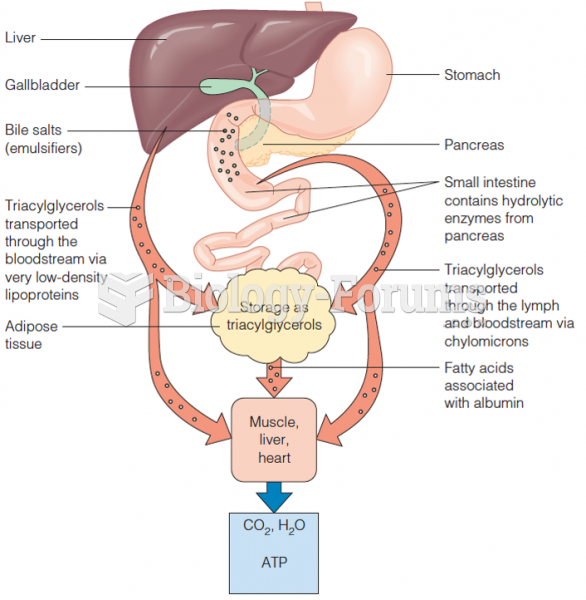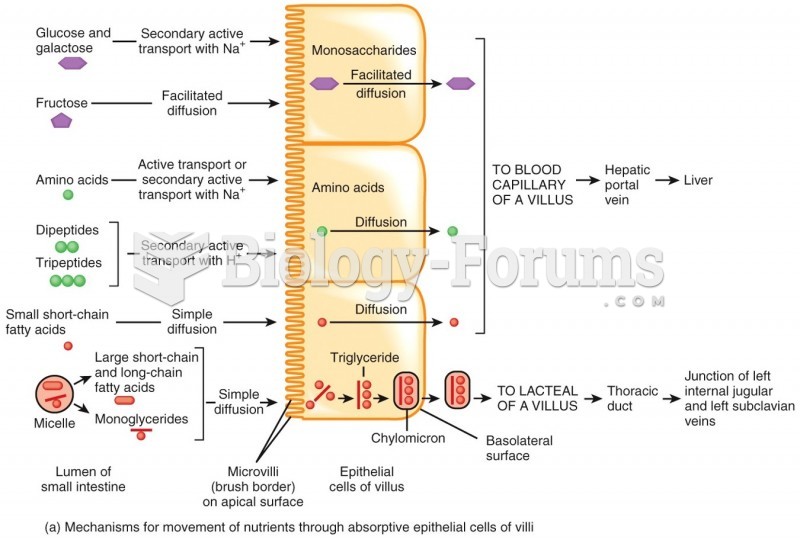Answer to Question 1
The task of the digestive system is to disassemble the disaccharides and starch into monosaccharides that can be absorbed into the blood. Following absorption, the liver converts to glucose any carbohydrates that were not absorbed in the form of glucose, so they can be used by the cells. The cells can then store the glucose, use it for current energy needs, or convert it to fat.
The first digestive enzymes to work on starch are those in the saliva; they begin taking the starch apart, and the enzymes in the stomach and intestines continue digestive action. The enzymes release the individual glucose units, which are absorbed across the intestinal wall into the blood. Cooking facilitates the digestive process by spreading out the tightly packaged chains of glucose so that during digestion the digestive enzymes can break the chains down into glucose units for absorption. One to four hours after a meal, all the starch has been digested and absorbed and is circulating to the cells as glucose.
If the blood delivers more glucose than the cells need, the liver and muscles take up the surplus to build the polysaccharide glycogen. The muscles hold two-thirds of the body's total store of this carbohydrate and use it during exercise. The liver stores the remaining one-third of the body's glycogen, making it available as needed to help maintain the blood glucose level.
Answer to Question 2
For optimal dental health, the American Dental Association (ADA) recommends the following:
Eat a balanced diet.
Keep snacking to a minimum, if possible. The ADA recognizes that some people, such as people with diabetes, may require snacks. For others, however, the ADA suggests limiting the number of snacks if brushing the teeth is not possible shortly after eating them.
Eat sweets with meals rather than between them.
Brush and floss thoroughly each day to remove dental plaque.
Use an ADA-accepted fluoride toothpaste and mouth rinse, and talk to your dentist about the need for supplemental fluoride.
Visit a dentist regularly.
Do not allow an infant to sleep with a bottle in the mouth that contains sweetened liquids, fruit juices, milk, or formula.







